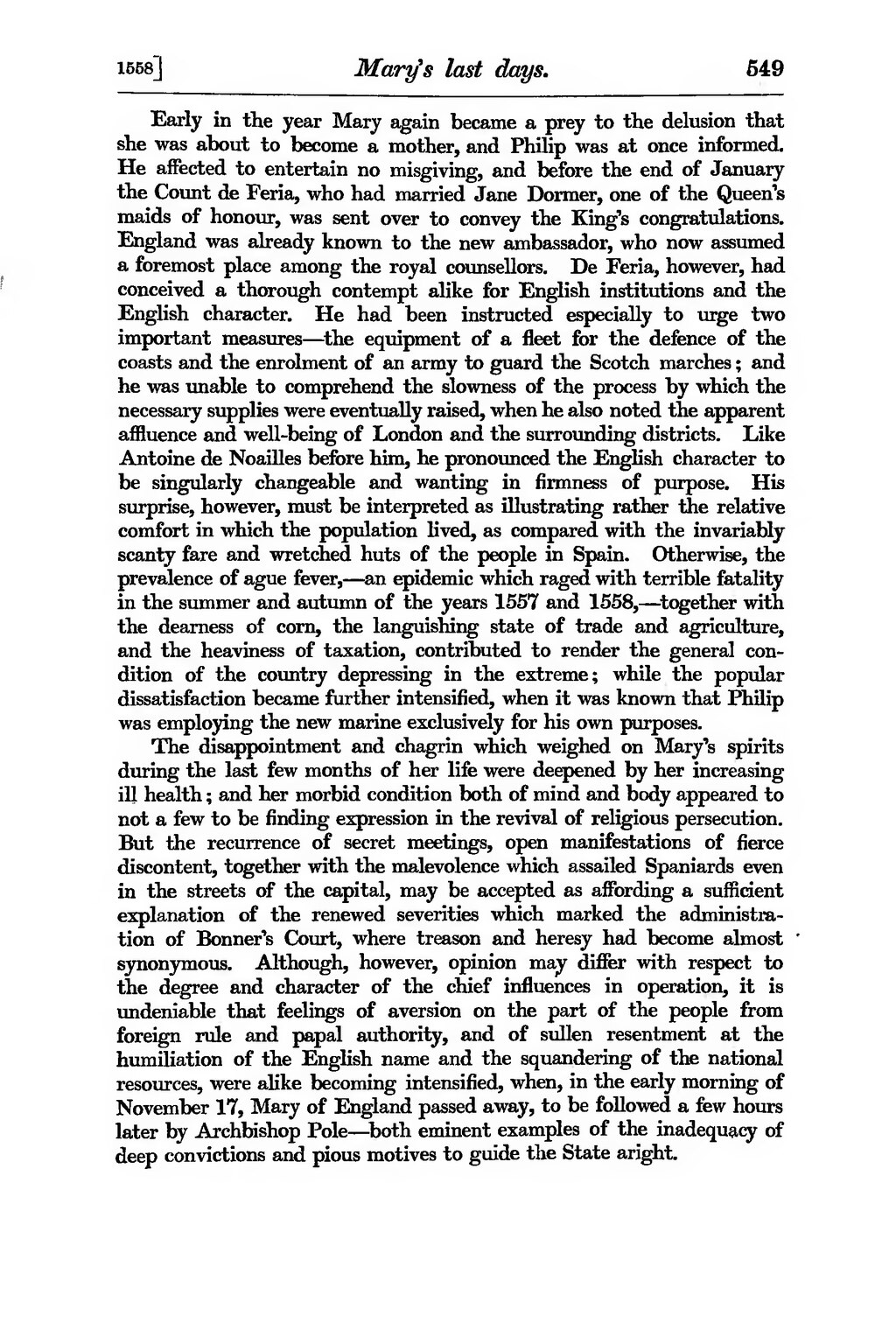Early in the year Mary again became a prey to the delusion that she was about to become a mother, and Philip was at once informed. He affected to entertain no misgiving, and before the end of January the Count de Feria, who had married Jane Dormer, one of the Queen's maids of honour, was sent over to convey the King's congratulations. England was already known to the new ambassador, who now assumed a foremost place among the royal counsellors. De Feria, however, had conceived a thorough contempt alike for English institutions and the English character. He had been instructed especially to urge two important measures-the equipment of a fleet for the defence of the coasts and the enrolment of an army to guard the Scotch marches; and he was unable to comprehend the slowness of the process by which the necessary supplies were eventually raised, when he also noted the apparent affluence and well-being of London and the surrounding districts. Like Antoine de Noailles before him, he pronounced the English character to be singularly changeable and wanting in firmness of purpose. His surprise, however, must be interpreted as illustrating rather the relative comfort in which the population lived, as compared with the invariably scanty fare and wretched huts of the people in Spain. Otherwise, the prevalence of ague fever,—an epidemic which raged with terrible fatality in the summer and autumn of the years 1557 and 1558,—together with the dearness of corn, the languishing state of trade and agriculture, and the heaviness of taxation, contributed to render the general condition of the country depressing in the extreme; while the popular dissatisfaction became further intensified, when it was known that Philip was employing the new marine exclusively for his own purposes.
The disappointment and chagrin which weighed on Mary's spirits during the last few months of her life were deepened by her increasing ill health; and her morbid' condition both of mind and body appeared to not a few to be finding expression in the revival of religious persecution. But the recurrence of secret meetings, open manifestations of fierce discontent, together with the malevolence which assailed Spaniards even in the streets of the capital, may be accepted as affording a sufficient explanation of the renewed severities which marked the administration of Bonner's Court, where treason and heresy had become almost synonymous. Although, however, opinion may differ with respect to the degree and character of the chief influences in operation, it is undeniable that feelings of aversion on the part of the people from foreign rule and papal authority, and of sullen resentment at the humiliation of the English name and the squandering of the national resources, were alike becoming intensified, when, in the early morning of November 17, Mary of England passed away, to be followed a few hours later by Archbishop. Pole-both eminent examples of the inadequacy of deep convictions and pious motives to guide the State aright.
